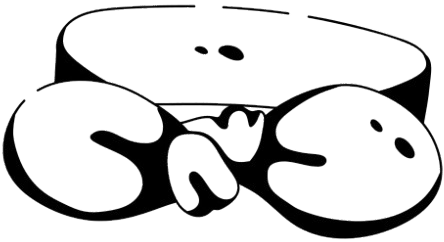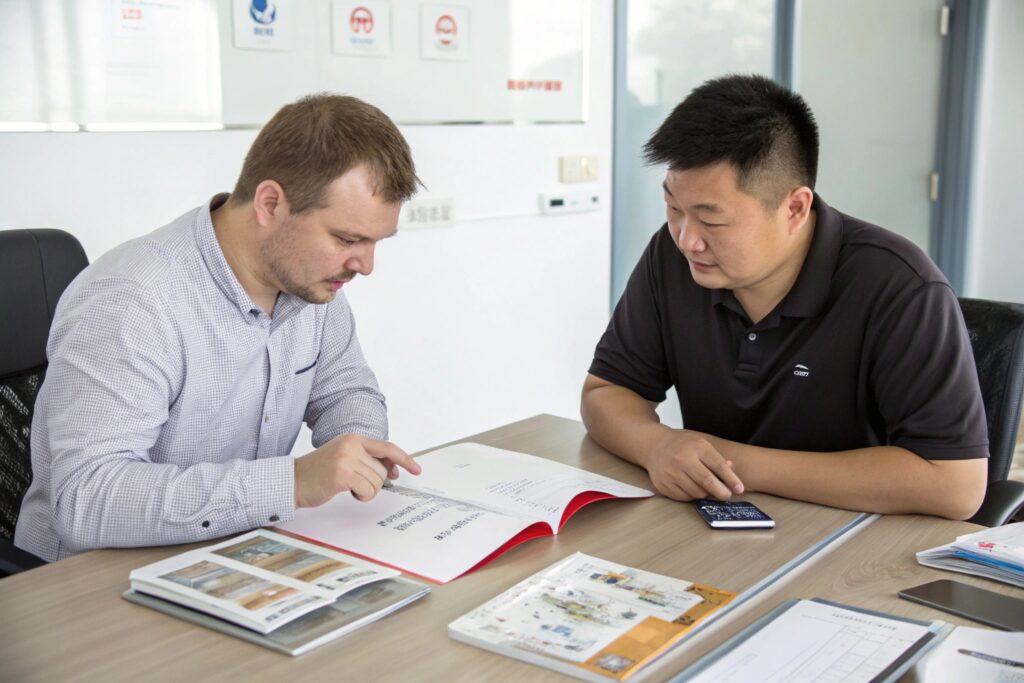Choosing the wrong factory can ruin your brand. Late shipments, poor quality, or missing customization options can cost you time and money. Asking the right questions upfront can save you from costly surprises.
The key to a successful partnership with a hair accessories factory is asking clear, specific questions about production, quality control, lead time, and customization capabilities.
As the owner of HairAcc, a leading headwear and hair accessories manufacturer in China, I've seen buyers grow faster when they know exactly what to ask. Let’s go over the questions that help you secure better deals and smoother production.
What questions to ask a hair vendor?
Many buyers just ask for a catalog and price. That’s not enough. If you want reliability and long-term value, you need to go deeper.
Ask questions about minimum order quantity, customization services, sample turnaround time, quality assurance, materials used, and shipping methods before placing your order.
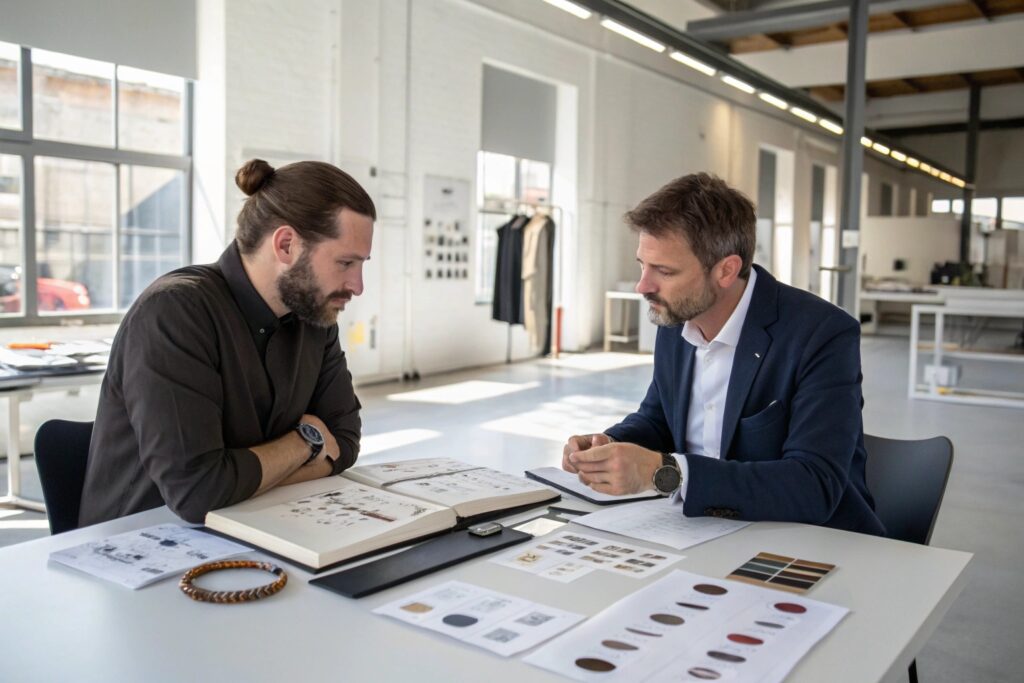
Questions That Reveal a Vendor's Real Capacity
Here are key questions to ask during your first conversation:
| Topic | Question Example |
|---|---|
| MOQ | “What’s your MOQ for private label designs?” |
| Sampling | “How many days for a sample?” |
| Lead Time | “How long does production take for 3,000 scrunchies?” |
| Materials | “Can you provide cotton, satin, or recycled fabric options?” |
| QC Process | “Do you have in-house QC or use third-party inspection?” |
| Certification | “Are your materials OEKO-TEX or REACH compliant?” |
| Packaging | “Can you do barcode stickers or retail-ready packaging?” |
| Logistics | “Can you ship DDP to the U.S. or Europe?” |
When buyers ask these questions, we know they are serious. It helps both sides align expectations and avoid miscommunication later.
Pro Tip
Always ask for real photos and videos of the factory, not just stock pictures. If they hesitate, it may be a trading company, not a manufacturer.
What to know when starting a hair business?
New to the industry? You’re not alone. Many boutique owners and online sellers start small, but grow quickly when they find the right supplier.
Before starting a hair accessory business, understand product trends, your target audience, manufacturing options, and how to choose a reliable supplier.
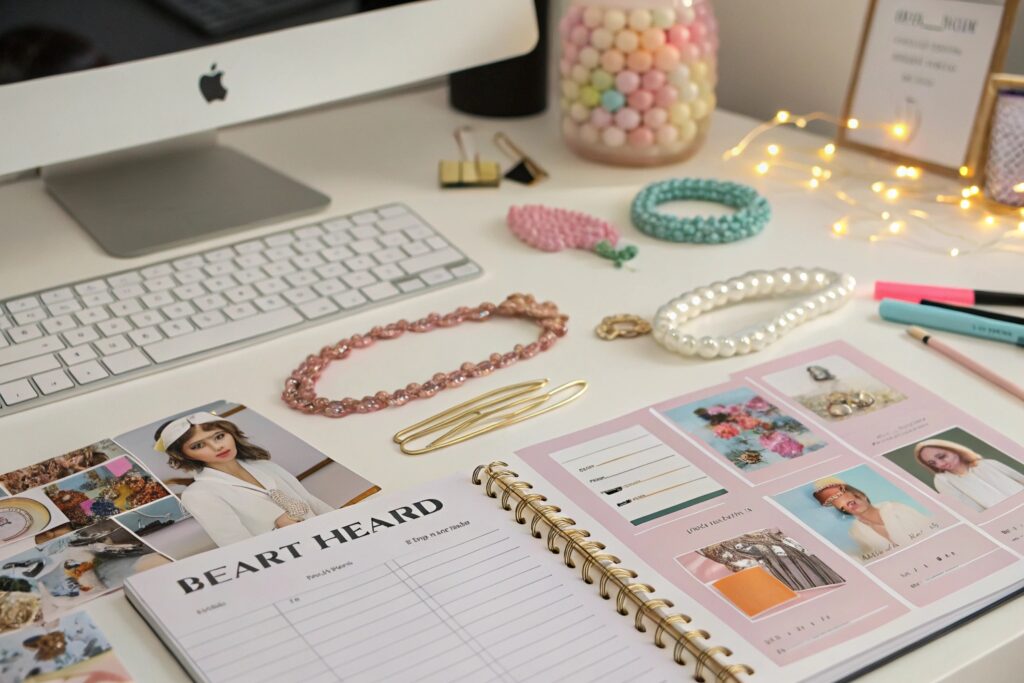
Key Areas to Focus On
-
Product-Market Fit
Know what styles your audience prefers—trendy velvet scrunchies, elegant pearl pins, or boho headwraps? Focus early. -
Customization Options
Private label branding is key. Make sure your supplier supports logo tags, printed pouches, or custom display cards. -
Shipping and Fulfillment
DDP (Delivered Duty Paid) makes it easier to start without hiring a customs broker. Ask if your supplier offers this. -
Inventory Planning
Start small, but scale smart. Ask about MOQ and tiered pricing for bulk orders. -
Trust and Communication
The best factories act like partners, not just vendors. They explain, guide, and respond fast.
Key Documents to Request
| Document Type | Why It Matters |
|---|---|
| Product Catalog | See available styles |
| Price Sheet | Budget planning |
| Sample Policy | Check quality before large orders |
| Factory Certifications | Ensure compliance (OEKO-TEX, BSCI, etc.) |
| Shipping Terms | Clarify DDP, EXW, or FOB options |
At HairAcc, we provide startup kits for new brands, including low-MOQ options and curated styles that sell well on Etsy, Amazon, and boutique platforms.
How to approach a hair vendor?
Approaching a supplier the right way can earn you better pricing, faster samples, and priority production slots.
Approach a hair accessory vendor by clearly stating your business model, target product range, order size, and customization needs—then ask focused questions about their service.
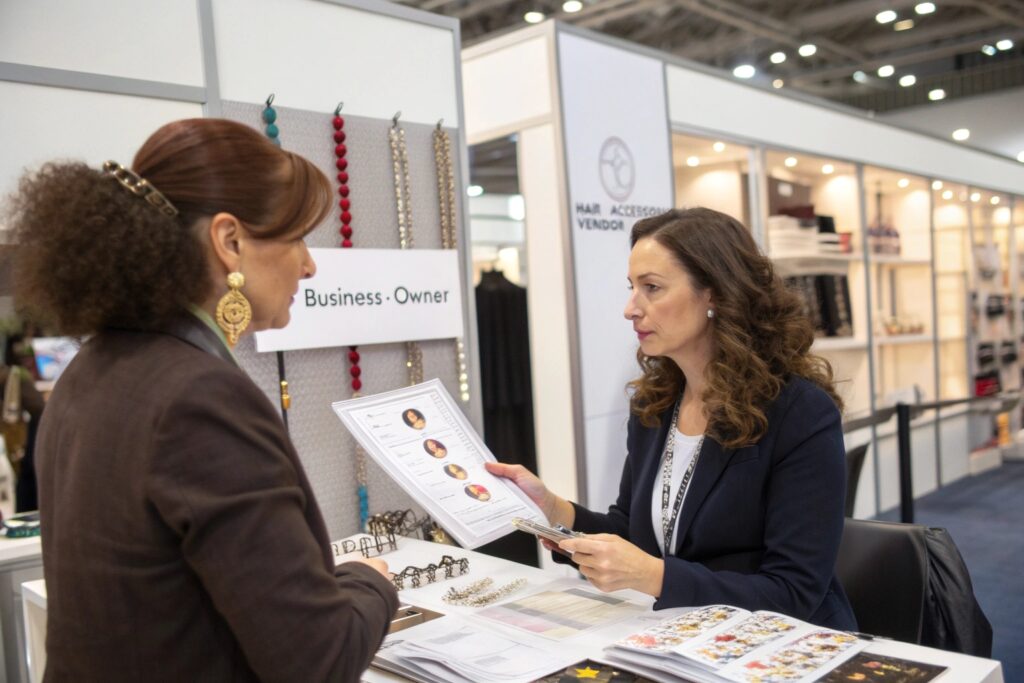
Sample Introduction Message
Hi, I’m Ron, the owner of a boutique accessories store in the U.S. I’m looking to source customized satin scrunchies and pearl hairpins for Q4.
I’d like to start with a sample order of 500 pieces, branded with our logo tag.
Can you share your product catalog, sample timeline, and packaging options?
This tells the vendor:
- You’re serious
- You know your target product
- You understand the process
Avoid vague questions like “Can I get the best price?” without context. Instead, ask:
- “What’s the price for 1,000 units with logo labels?”
- “How much does packaging add per unit?”
- “Do you offer discounts for repeat orders?”
A factory will take you seriously—and respond quickly—when you show you’re prepared.
What does a hair vendor do?
Many buyers don’t realize the full scope of services a professional hair accessories vendor offers. It’s more than just producing products.
A hair vendor manages design sampling, raw material sourcing, production, quality inspection, custom packaging, and shipping—including customs documentation.
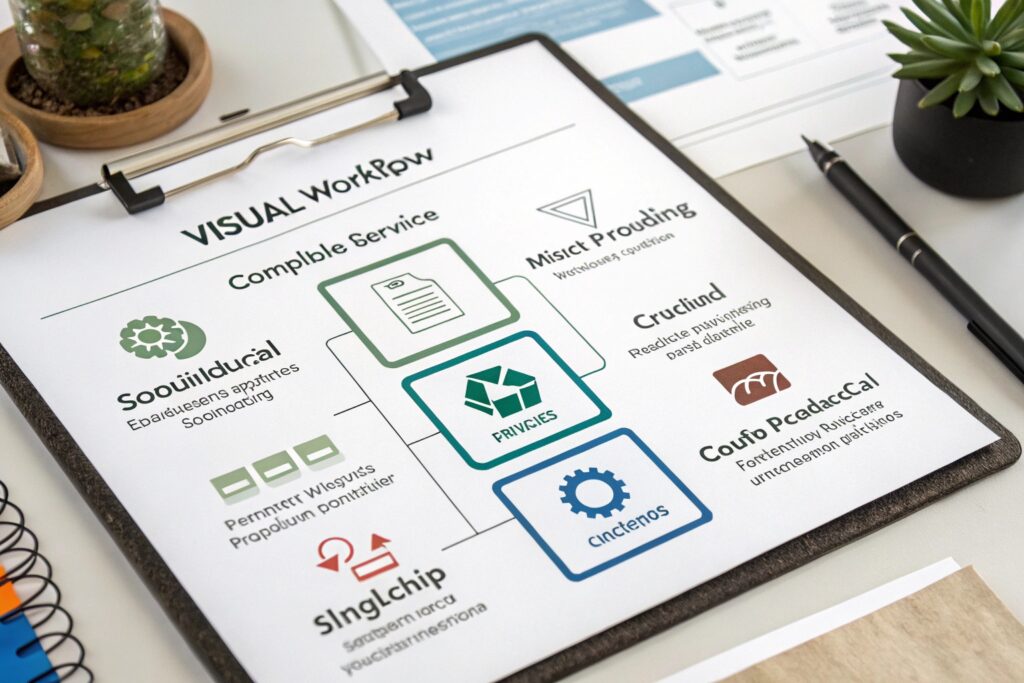
What a Professional Vendor Should Offer
| Service Provided | Why It Matters |
|---|---|
| Design Assistance | Helps turn your ideas into viable products |
| Sampling | Tests quality before mass production |
| Production Planning | Ensures your timeline is met |
| Material Sourcing | Access to velvet, satin, chiffon, etc. |
| Quality Control | In-house or third-party QC |
| Packaging | Adds branding and retail-readiness |
| Logistics Support | Provides DDP or CIF options |
At HairAcc, we also advise clients on style trends, packaging cost savings, and warehouse-friendly packaging. We support both boutiques and large retailers—each with tailored solutions.
Conclusion
Working with a factory is not just about price—it's about partnership. Ask smart questions, plan carefully, and your hair accessories brand will thrive. At HairAcc, we’re happy to answer every question—because when you succeed, so do we.
